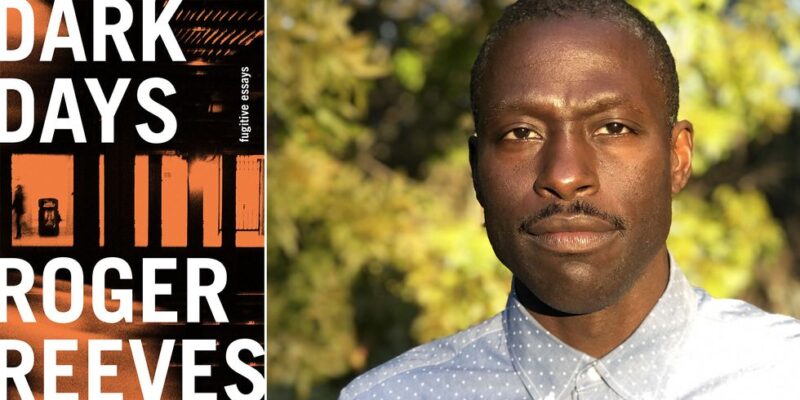Roger Reeves on Sensory Essays
In Conversation with Mitzi Rapkin on the First Draft Podcast
First Draft: A Dialogue of Writing is a weekly show featuring in-depth interviews with fiction, nonfiction, essay writers, and poets, highlighting the voices of writers as they discuss their work, their craft, and the literary arts. Hosted by Mitzi Rapkin, First Draft celebrates creative writing and the individuals who are dedicated to bringing their carefully chosen words to print as well as the impact writers have on the world we live in.
In this episode, Mitzi talks to Roger Reeves about his new essay collection, Dark Days.
Subscribe and download the episode, wherever you get your podcasts!
From the episode:
Mitzi Rapkin: One of the things that I sensed from your essays when I put it down and walked away, I was like, that was a very sensory filled experience. I feel like your essays are very sensory. And even though you’re talking about joy and ecstasy, and the terrible history of what America is, and the violence and the hate and also the beauty of poetry and the influence of art and the freedom of art. I walked away with a few key words, which were like, ecstasy, freedom, silence, reading. And they felt more bodily to me.
Roger Reeves: It’s funny, because, you know, first we talked about the intellectual complexity of the essays, right? I think that’s what I’m trying to do with the sentence, I want to make the sentence be a feeling because one of the things we carry with us well is feeling. And what I mean by well is we know our feelings, we can be with our feelings, we’re all kind of experts of our own feelings, hopefully. And so, I want it to feel corporeal. I want the essays to feel as if they are embodying pleasure, that they are playing. I have an eight-year-old, I watch her play. And I watch kids play, and I think that’s the way to make art, which is even when we’re doing something with words is to make it feel as if it’s as tangible as an orange or tomato, or you know, petting a horse or touching a tree. I want to bring in those sensory moments. And I think even in one of the letters in the essay collection, where I imagined Michael Brown sitting next to a cousin, I want people to be thinking about people’s bodies in space. That often there’s a knowledge in the space with others. I always think about how I physically feel when I’m reading. Like I ask myself, Oh, what do you feel, what are you noticing? Because the book is creating an experience for me to sort of be in the world with it even as I’m in the world with the book. But I’m also thinking about the sentence, quite honestly, like, I want to make a sentence that makes people feel. I want people to feel as if, even if they didn’t understand the sentence, they understand it, maybe physically corporeally, right, that the sentence is physically enacting something on them. And that comes from the poem. So hopefully, I was building sentences and building essays where people felt like they could just be present with the work.
***
Roger Reeves earned his PhD from the University of Texas, Austin, and is the author of Dark Days: Fugitive Essays Best Barbarian; and King Me, winner of the Larry Levis Reading Prize, the PEN/Oakland Josephine Miles Literary Award, and a John C. Zacharis First Book Award.




















